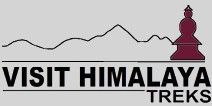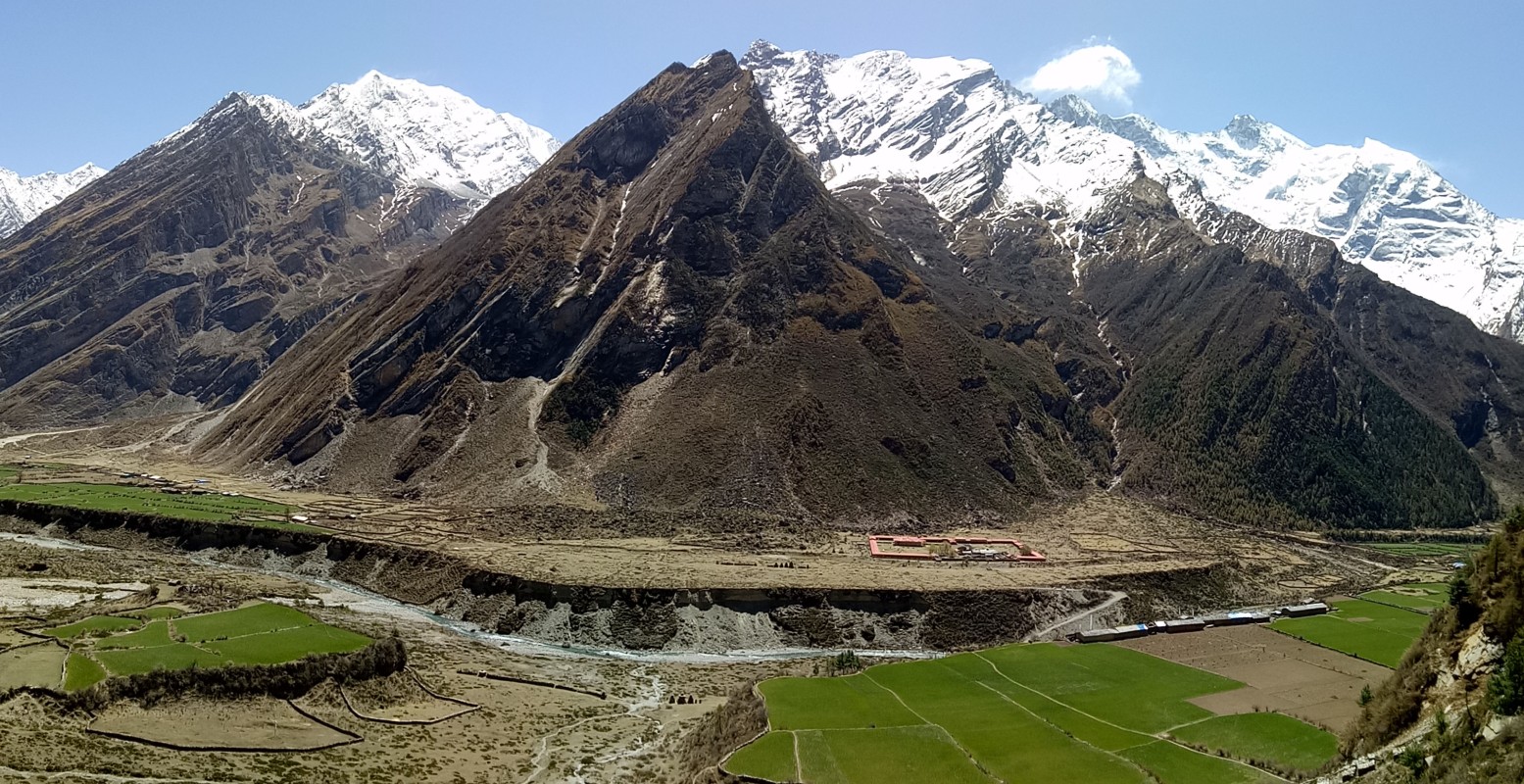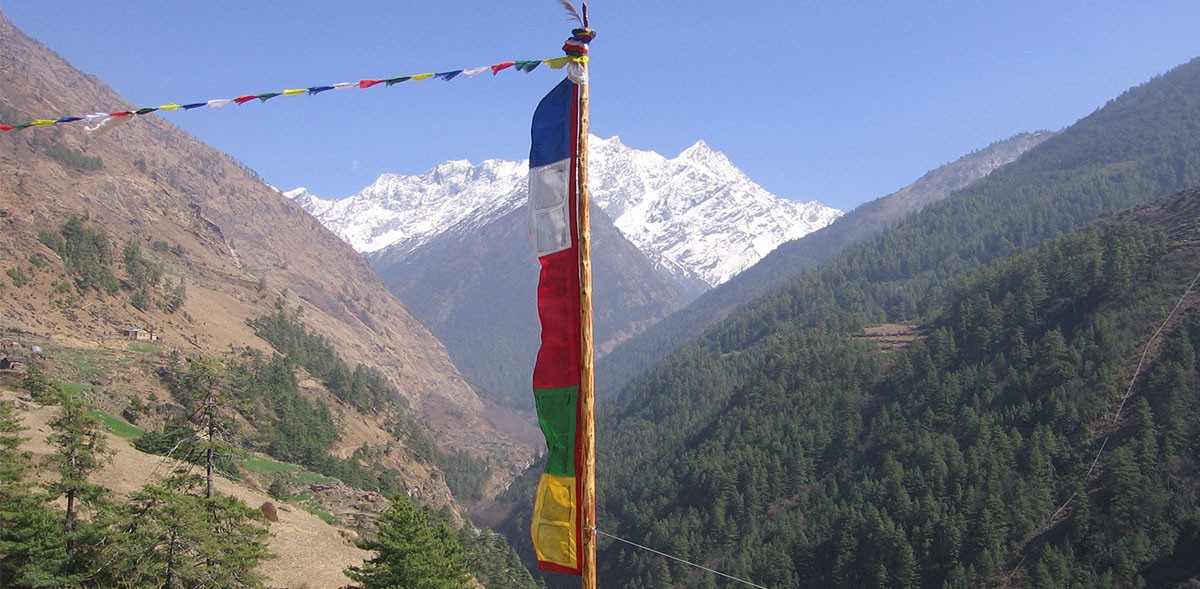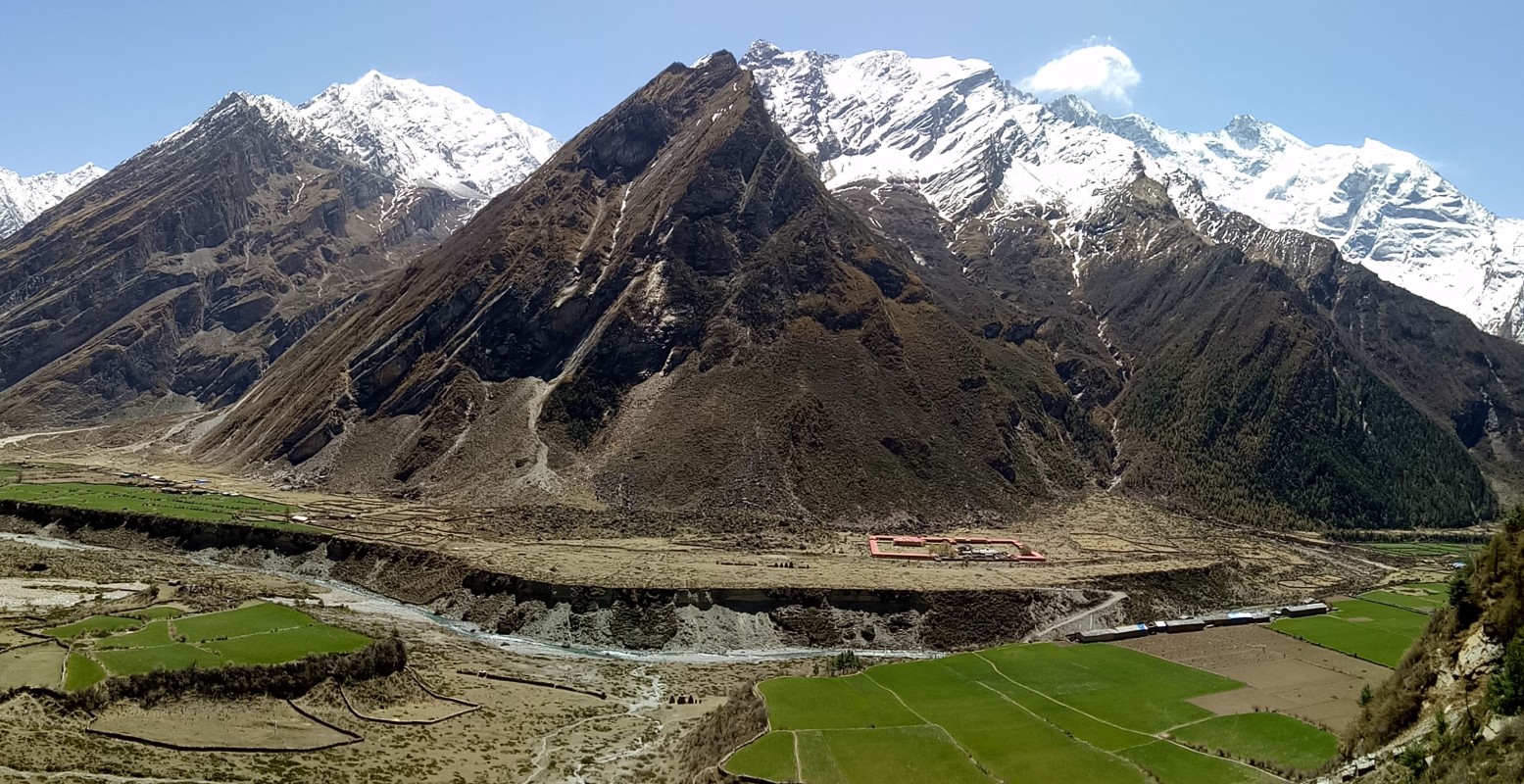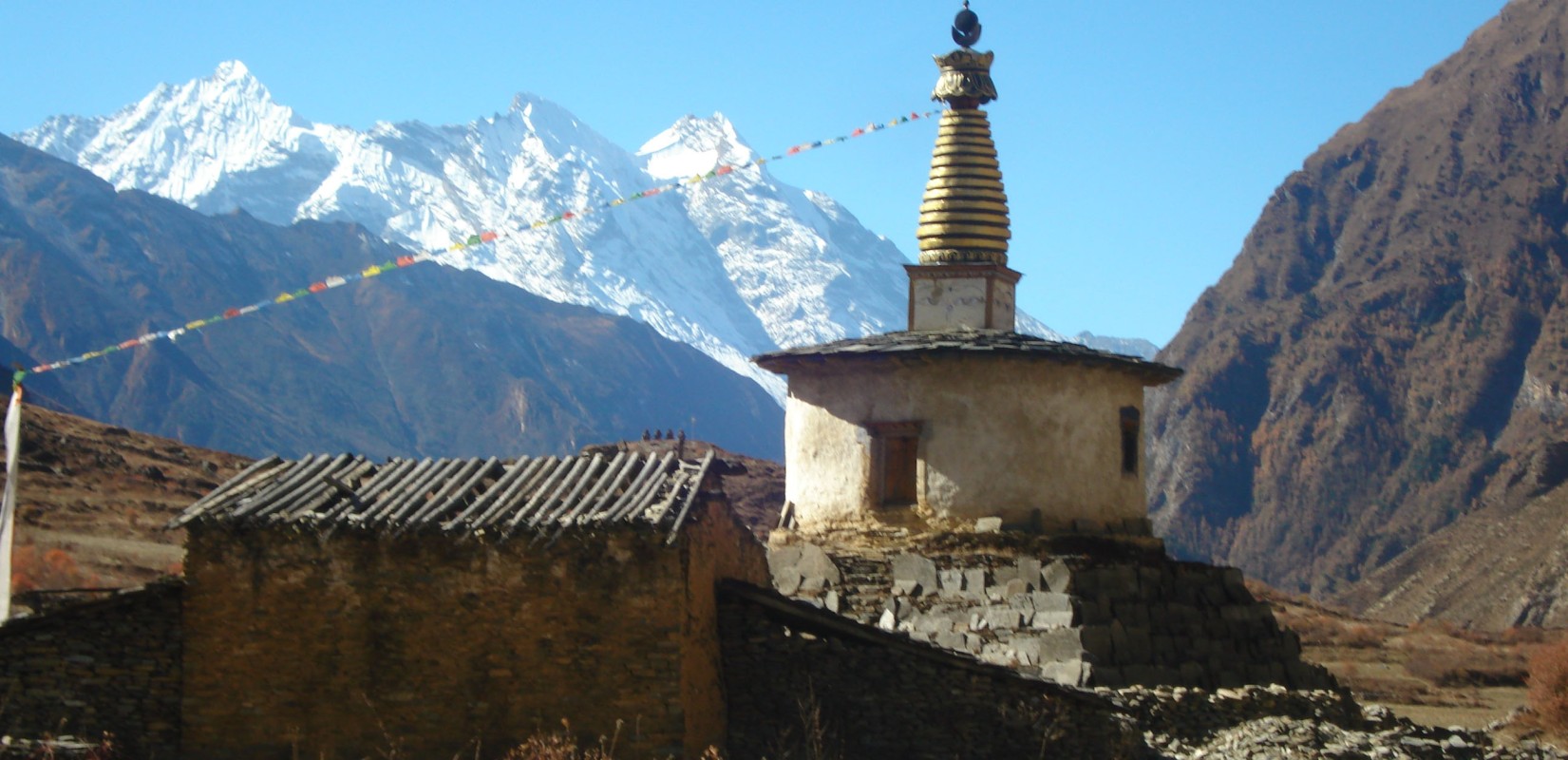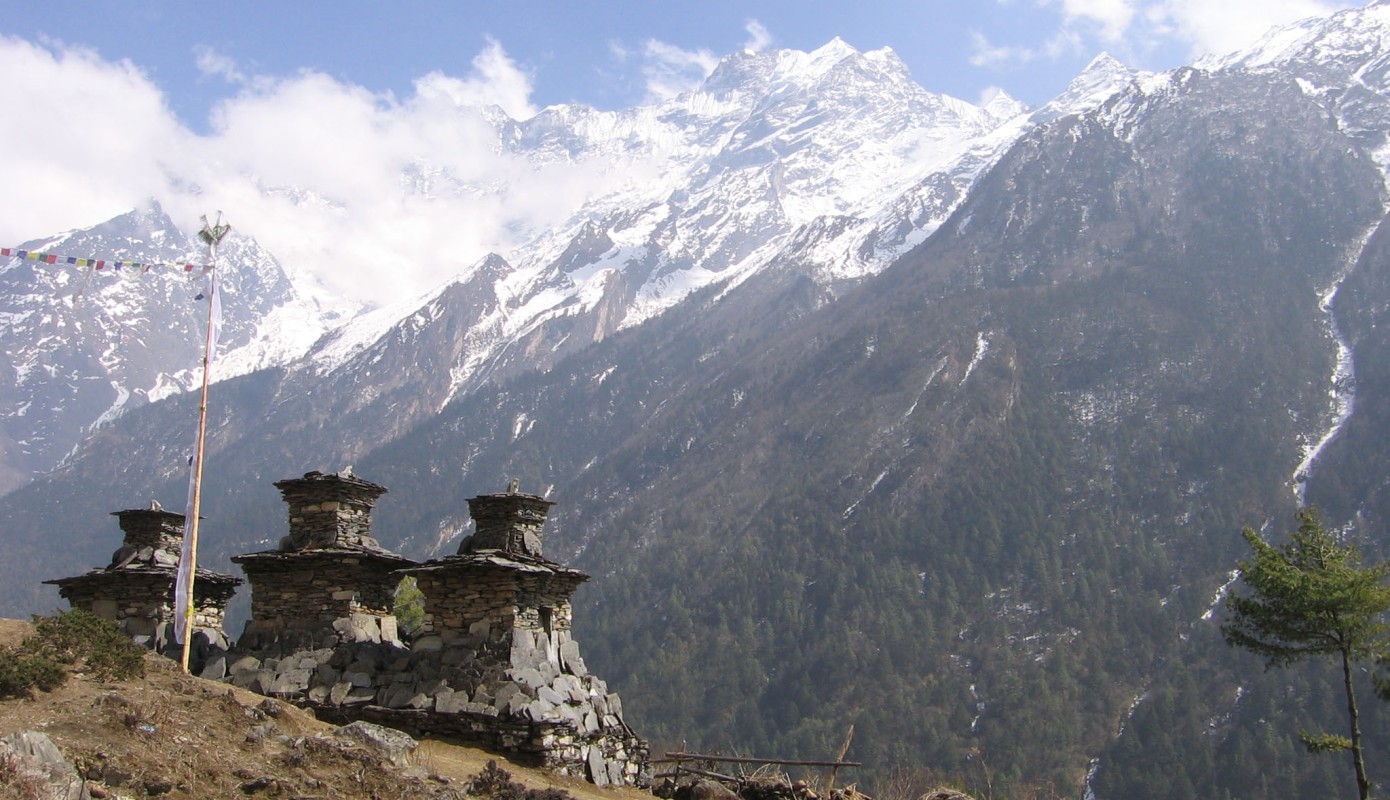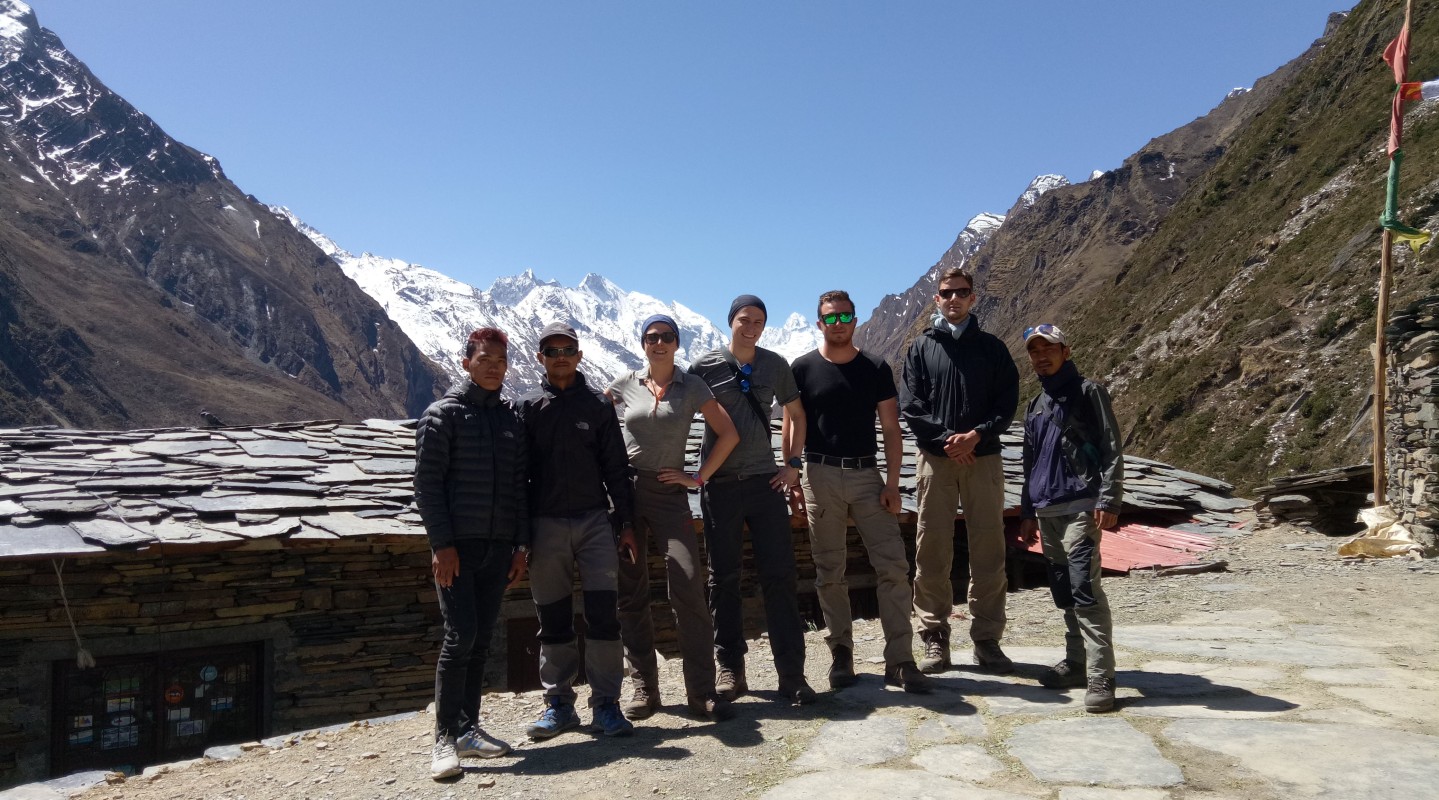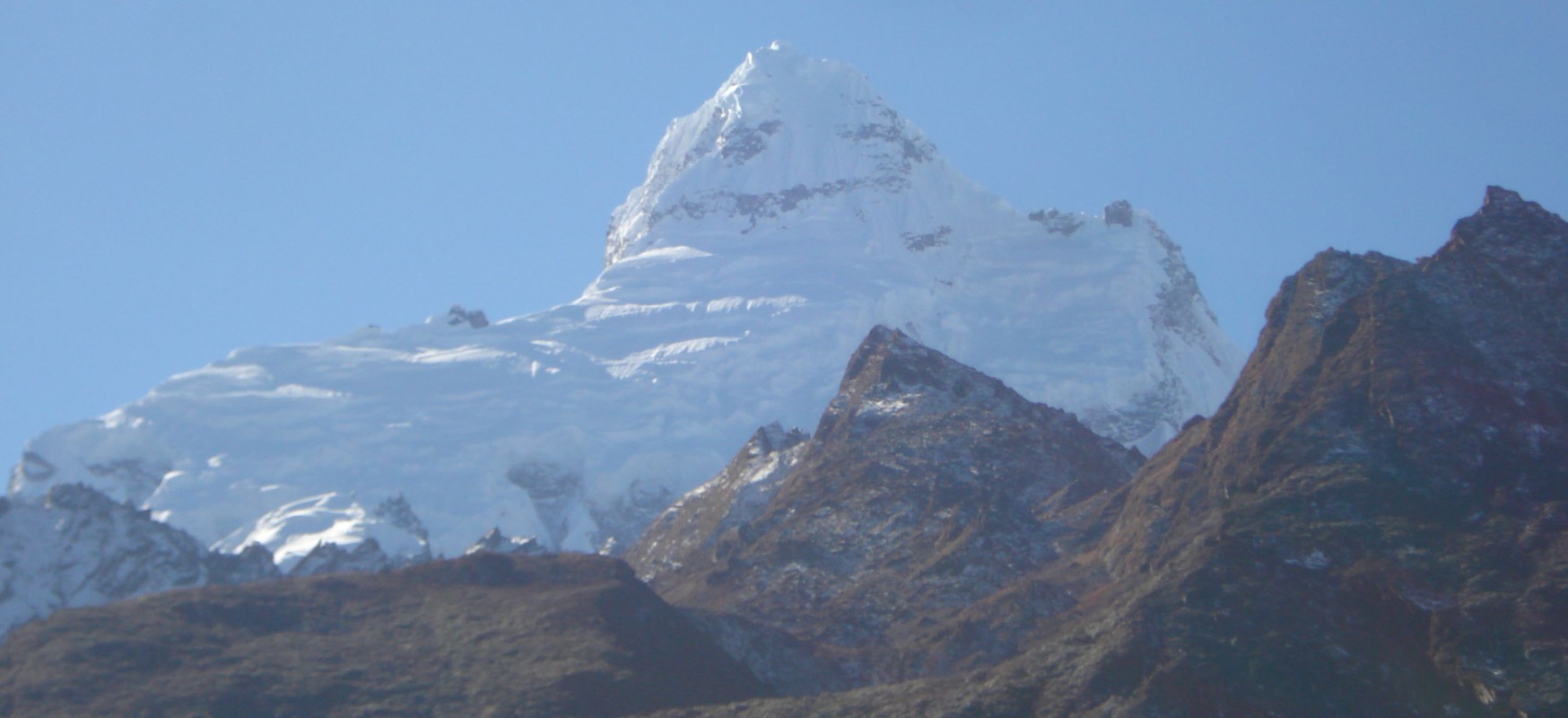Tsum Valley Ganesh Himal Base Camp Trek is an "off the beaten path" trek in the mysterious valleys of Tsum, at the Nepal - Tibet border in the Manaslu Region. Perfectly set with the majestic backdrop of the Ganesh Himal (7422 meters), Shringi Himal (7161 meters), and Boudha Himal Range, this placid valley is also rich in Tibetan culture and has several ancient monasteries. Still intact, the unique culture of Tsum Valley due to its remoteness and inaccessibility can also be experienced in full-on Tsum Valley Trek.
Tsum Valley Trek Highlights
- Visit Mu Gompa very old Buddhist monastery.
- experience pure traditional Tibetan culture.
- Visit Milarepa Cave and Nunnery monastery Gomba Lungdang.
- Breathtaking Himalayan views of Ganesh Himal.
- Trek to Ganesh Himal Base Camp.
Like most of the treks in Nepal, Tsum Valley Ganesh Himal Base Camp Trek starts through terraced villages and gradually climbs onto alpine meadows and pastures. Aarughat, Soti Khola, Machha Khola, Jagat, and Phillim are the villages before the trek enters the higher lands inhabited by people of Tibetan origin. After Phillim, increasing numbers of mane walls and small chortens mark the trek's entry into the Tibetan Buddhist villages of the Manaslu Region.
Tsum Valley offshoots from the main trail after Phillim and extends all the way up to the Tibetan border. The valley is enclosed by Ganesh Himal Range, Boudha Himal, and Shringi Himal and offers a stunning mountain panorama. Old and important monasteries of the Manaslu Region, like Mu Gompa and Gomba Lungdang adds a spiritual feel to the already scenic valley of Tsum.
We can trek along the Tsum Valley staying using a basic tea house and Homestay these days; however, we will stay overnight at Ganesh Himal Base Camp where tea houses, Lodges are not available so Camping arrangements are required for staying at Ganesh Himal Base Camp. Visit Himalaya treks offer tea house, homestay base trek to Tsum valley combined with Manaslu Circuit Trek without Ganesh Himal Base Camp.
Tsum Valley Ganesh Himal Base Camp Trek Itinerary,
Day 01: Arrive in Kathmandu (1335 meters
Day 02: Sightseeing and Trek Preparation.
Day 03: Machha Khola (930 meters).
Day 04: Trek to Jagat (1120 meters).
Day 05: Trek to Lhokpa (2240 meters).
Day 06: Trek to Chumling (2368 meters).
Day 07: Trek to Chhokangparo (3010 meters).
Day 08: Trek to Mu Gompa (3700 meters).
Day 09: Trek to Chhokangparo (3010 meters).
Day 10: Trek to Gumba Lungdang (3200 meters).
Day 11: Trek to Ganesh Himal Base Camp (4200 meters).
Day 12: Explore Ganesh Himal Base Camp.
Day 13: Trek back to Gumba Lungdang (3200 meters).
Day 14: Trek to Lhokpa (2240 meters).
Day 15: Trek to Jagat (1120 meters).
Day 16: Trek to Machha Khola (930 meters).
Day 17: Drive to Kathmandu.
Day 18: Departure.
